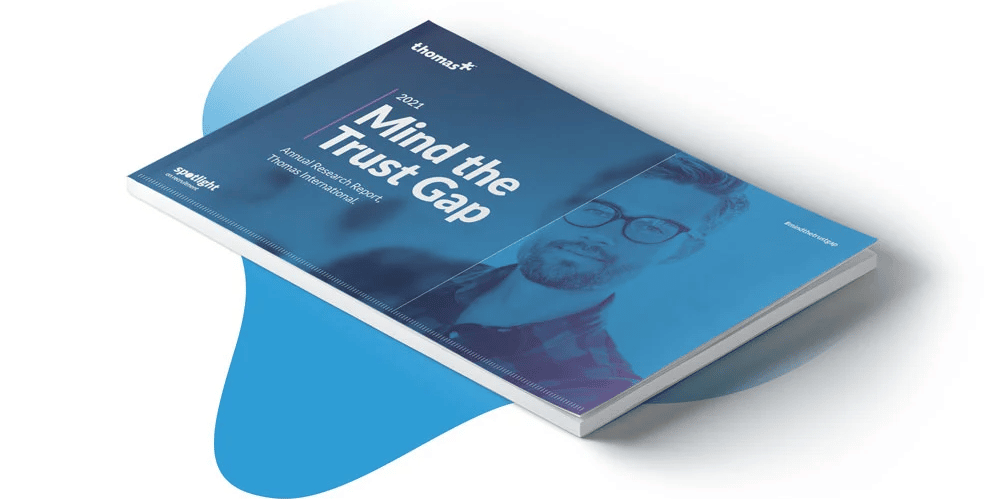
The research, global talent assessment platform provider Thomas International, also shows that with current recruitment methods broken, nearly 88% of hiring managers and recruiters believe predictive hiring and hiring for potential will be essential to their organisation by 2023.
The future of work is here – hybrid working is the new status quo with talent and teams spread across the globe. While recruitment across the UK has picked up, latest figures show the number of workers on payroll surged by 356,000 in June alone, businesses are clearly struggling to recruit amid rapidly changing circumstances. According to Thomas’ research, over half of all new hires aren’t working out in some capacity.
The 2021: Mind the trust gap report, which surveyed 500 senior hiring managers and recruiters in the UK, reveals a shake-up of recruitment practices is on the horizon. Driven by the need to combat the growing tension between the requirements of the changing working landscape and people’s diverse characteristics, resilience and motivations.
With current recruitment methods clearly broken, nearly all (88%) hiring managers and recruiters believe predictive hiring and hiring for potential will be essential to their organisation by 2023.
The data further reveals hiring managers and recruiters believe the best indicators of how an employee will perform in an organisation are personality (34%), emotional intelligence (32%) and adaptability (32%). With traditional pointers such as performance in an interview (7%), qualifications (16%) and relevant previous experience on a CV (19%) no longer ranking as valuable.
Sabby Gill, CEO of Thomas comments on the findings, “Businesses need to make a step change in how they recruit if they’re to hire the right candidates first time, every time. Otherwise they risk falling behind. Predictive hiring can help identify traits in individuals and teams that can be harnessed and acted upon so companies can function properly and innovate successfully in this new world of work.”
Further, nearly three-quarters (72%) think psychometrics can help enhance trust during recruitment. In fact, the data reveals if hiring managers and recruiters had to trust only one method to predict the future performance of all hires in the next 12 months, nearly half (46%) would opt for psychometric testing only. Only a third (33%) said interview, while only 21% said CV.
The report further found the benefits of predictive hiring were improved quality of hires (70%), improved employee engagement (86%), greater ability to discover areas for individual’s personal development (80%) and showcasing skills shortages within the business (79%).
